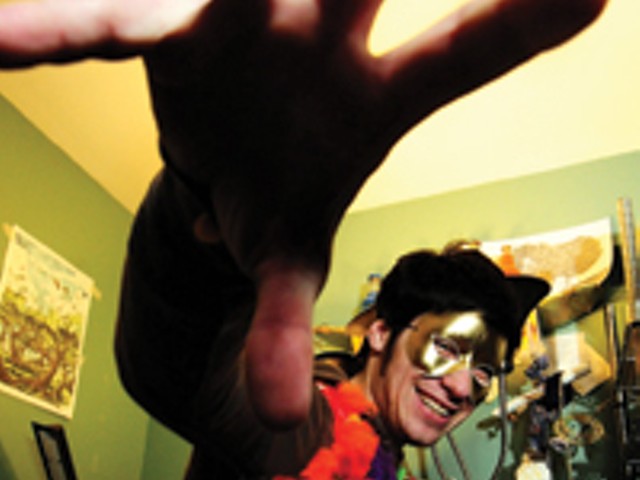It was a poor neighborhood, even if some of the residents were wealthy. They lived with crime and overcrowding. But they didn't give up.
For violinist Regina Carter, whose late mother came from Black Bottom, knowing those roots keeps her humble, even as she's gone on to international acclaim.
"You hear that people grew up so poor sometimes, they only got an apple for Christmas," Carter says. Yet many of them worked to ensure their children had a better life: "These people busted their butts for you, so you better get on the good foot."
Carter, winner of a MacArthur genius grant, one of the most lauded jazz instrumentalists of her generation, remembers and gives back to that community in Black Bottom, a collaboration with poet-narrator Leslie Reese, performed by Carter's combo and vocalist Carla Cook.
"Detroit is a city that's full of history, and there are a lot of young people now that live in Detroit who don't know anything about Black Bottom, and I feel like we can't let that go on," Carter says. "It's important for people to know about it and for us to not let it slip through the cracks."
So Carter hopes to "entertain people with our music stories, but also to inspire them to check out some more of Detroit's history."
Carter finds the historical Black Bottom interesting because of its economic diversity — and its African-American inhabitants' strong sense of community.
"There were a lot of extremely poor people, but also some wealthy people that lived in that same community," she says. "There was a lot of crime, a lot of poverty, but people persevered ... more-so than now. We don't seem to have those types of tight-knit communities anymore, and there are not as many extended families living together."
Carter found Black Bottom so interesting that she decided to build a composition around it — titled Black Bottom — convincing her friend Reese to help her prepare.
"I asked my dear friend Leslie to interview people and collect their stories; it's really interesting to see how she put them together," the violinist says. "They're their stories, but they're through Leslie's eyes."
Carter and Reese collected stories about the community from various relatives, historical photographs, and interviews with onetime Black Bottom inhabitants.
The two women — who, along with Cook, have known one another since they were schoolmates at Cass Technical High School — have found inspiration in each other during their conception of Black Bottom.
Carter says that working with Reese is similar to working with a fellow jazz musician because she's open to exploring new artistic methods.
"Her perspective is so different that it's inspirational for me," Carter says. "It was a blast to work with her."
After comparing notes and creating several compositions based on their research, the two women finally created their musical and vocal dedications.
Because both are Detroit natives with family members who have lived in Black Bottom, this has become a very personal project for them.
Carter was always intrigued by what she learned about this once-beloved community, the one destroyed in 1960s to make way for the Chrysler expressway and "urban renewal." Her memories are often sad and include driving downtown with her mother to visit where the neighborhood had once stood.
The violinist has earned national and international attention for her numerous records, her genius grant and her status as the first non-classical musician to play and record on Paganini's vintage 1743 violin, known as "The Cannon."
But Black Bottom stands out among her projects, she says.
"While it might not have the same impact on audiences as playing 'The Cannon' or working with Ray Brown, it's just as important and is a personal project," she says, referring to legendary jazz bassist Brown.
But it's not as if Black Bottom has gone unnoticed. Originally commissioned by the prestigious New York City's Jazz at Lincoln Center, Black Bottom has been hailed as "breathtakingly daring" by Time magazine.
Thursday, May 15, 8 p.m. in Orchestra Hall, 3711 Woodward Ave., Detroit; 313-576-5100. Tickets $19 to $99 (box seats).
Isaac Elster is a Metro Times intern. Send comments to [email protected]




